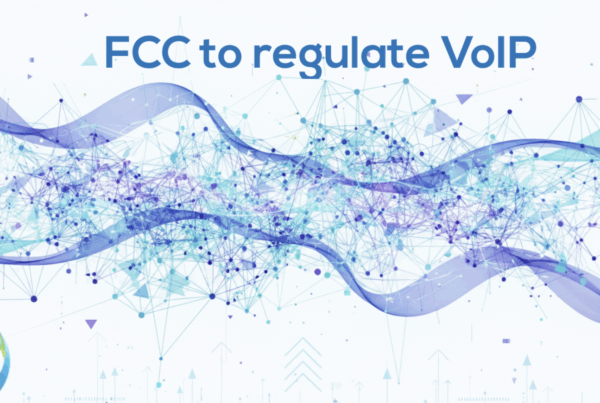The Malaysian regulator’s move against Telegram marks a new chapter in platform accountability. With over 8M local users now triggering licensing under the 2025 law, regulators are no longer treating OTT apps like side players. The Telegram injunction isn’t just about one channel, it’s a signal that regulation is shifting, and messaging platforms must be ready. MEF’s Dario Betti explains.
In a notable escalation, the Malaysian Communications and Multimedia Commission (MCMC) has obtained a court injunction against Telegram, targeting one public channels on the messaging platform—Edisi Khas (previously called Edisi Siasat) . The high court’s temporary order halts the distribution of content deemed harmful under Malaysian law, including material related to scams, pornography, content affecting racial, religious, and royal sensitivities, and more.

The MCMC injunction
Malaysia’s new social media legislation (effective January 2025) mandates platforms with over 8 million local users to be licensed and accountable under the Communications and Multimedia Act. The government asserts that the platform’s encryption and non-cooperation with local regulatory bodies have enabled harmful actors to operate unchecked. The MCMC states that Telegram repeatedly failed to act on reported content, allowing material that could damage public confidence in institutions and upset social harmony – the official communication is available here. The injunction is precautionary, with Telegram granted the opportunity to defend itself in court.
Industry observers note that this reflects a broader regional trend, with countries like Indonesia and India also tightening digital platform regulations. However, critics and digital rights groups have raised concerns that such regulations could enable overreach and censorship, depending on how enforcement is handled.”
Telegram’s position
Telegram, which has positioned itself as a privacy-focused messaging app resistant to state interference, has faced similar scrutiny elsewhere—including in France, India, Germany, and Indonesia—over its moderation policies. Telegram has yet to issue a formal public response to the recent injunction. However, prior exchanges with Malaysian authorities provide insight into its stance:
- Telegram previously asserted its firm resistance to “any form of political censorship”, citing a commitment to privacy and free speech—even as it claimed to moderate illicit content like drugs and pornography via public channel monitoring and report-based takedown systems
- In June 2023, after being labelled as a haven for scam-related cybercrime, Telegram reiterated that it would continue to work with Malaysian authorities, including MCMC and police, to combat online illegal activity, but defined its approach as based on moderation of public-facing content—not political content censorship
According to reports shared by users on X (formerly Twitter), the entire chat of the channel disappeared instead at the bottom of the screen there is a message that read “This channel can’t be displayed because it violated local laws (Malaysia)”. The Edisi Siasat Telegram channel had more than 1.17 million users before it was blocked. Some users went online to defend the channel linking its closure to the October 2021 allegations of irregularity at the Malaysia Anti-Corruption Commission (MACC) and the police by Edisi Khas.
This development reflects a broader trend as governments globally intensify their oversight of Over-the-Top (OTT) messaging services, demanding that they adhere to the same responsibilities as traditional telecom operators, especially regarding public safety, fraud prevention, and content governance.
The new Malaysian regulatory framework
In July 2024, Malaysia introduced a new mandatory licensing regime for major social media and digital platform operators, aiming to tackle growing cyber offences such as scams, fraud, and harmful online content.
Under this framework, platforms with over 8 million Malaysian users (such as Meta’s Facebook, TikTok, X/Twitter, and Telegram) are required to register for a local license. The move grants Malaysian authorities greater oversight and enforcement capabilities, including demands for faster content removal and improved cooperation in investigating cybercrimes.
The government stated the law was designed to curb illegal activities such as online scams, data misuse, and the spread of extremist content, which have seen a marked rise in Malaysia. Platforms that fail to comply risk fines, restrictions, or potential blocking of services.
Malaysia’s social media licensing regime was introduced on 1 August 2024, giving platforms a five-month window to apply. Full enforcement began on 1 January 2025, from then operating without a license became an offense. Platforms with over 8 million Malaysian users—including messaging services—must comply under the Communications and Multimedia Act 1998
Industry observers note that this reflects a broader regional trend, with countries like Indonesia and India also tightening digital platform regulations. However, critics and digital rights groups have raised concerns that such regulations could enable overreach and censorship, depending on how enforcement is handled.
Implications for the Mobile Ecosystem
For MEF members—including messaging providers, CPaaS platforms, regulators, and enterprise brands—this case highlights a critical friction point in the evolving messaging landscape:
- Regulatory Convergence: Traditional telecom players and OTT services are increasingly subject to overlapping rules as governments insist that platforms offering mass communication capabilities bear responsibility for content distributed over their networks. This form of ‘Regulatory parity’ would see OTT platforms being regulated under frameworks previously applied to mobil4 operators “including lawful intercept and content liability. Licensing, content moderation, and legal oversight are no longer optional.
- Opportunity for industry-wide standards: MEF’s work in self-regulation could become more important. A proactive, transparent framework for content integrity and moderation can help preserve trust and market stability. There are increased demands for collaboration with partners in identifying processes to review claim and challenges. Platforms must clearly define how they respond to local requests and moderation requirements—especially in regions sensitive to cross-border content.
- Regional Risks and Market Access: OTT platforms resisting local moderation requirements may face operational risks—such as fines, service restrictions, or outright bans—which could shape enterprise channel strategies, particularly in Asia-Pacific markets.
Looking Ahead
Telegram has not issued a formal response to the Malaysian lawsuit at the time of writing, but the outcome of this case could set important precedents—not only for Malaysia but for other jurisdictions contemplating stricter control over global messaging apps.
For the wider mobile ecosystem, this development serves as a reminder that the lines between private communication, public broadcasting, and regulated content are blurring, demanding renewed dialogue between platforms, regulators, and industry bodies such as MEF.
Stay informed with MEF and our Member only Insight services, as our Interest Groups and Working Groups continue to monitor global developments shaping the future of messaging, content governance, and platform accountability.





